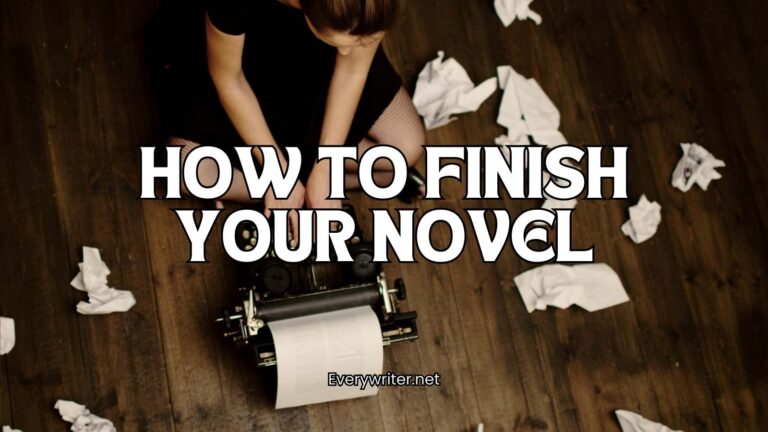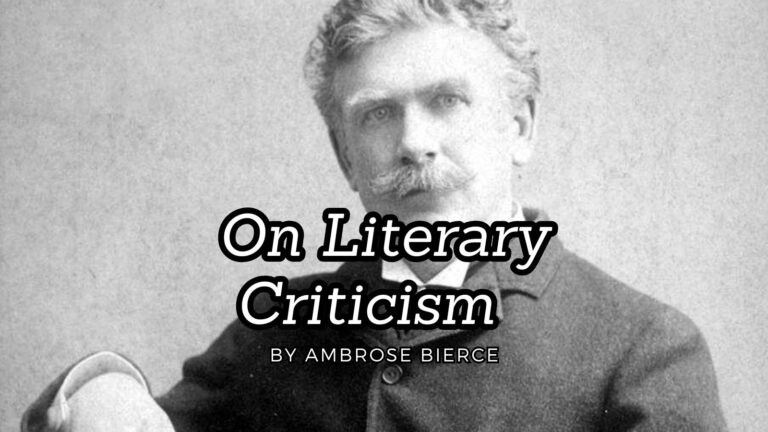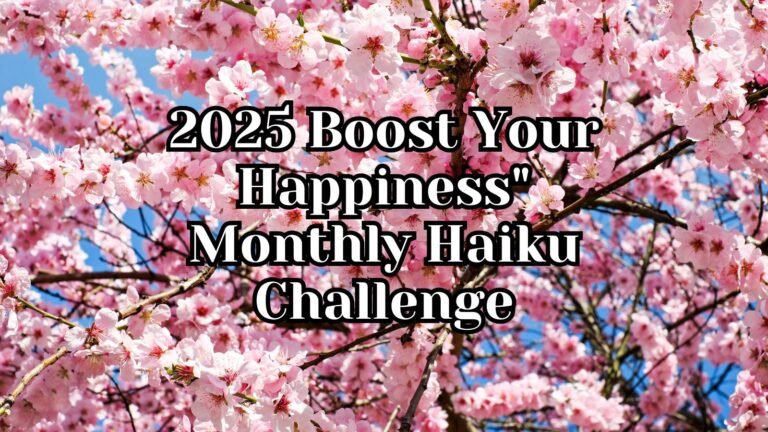50 Free Writing Exercises to Inspire Your Next Story
Free writing is one of the most powerful tools for improving creativity, breaking through writer’s block, and developing strong writing habits. Whether you’re a seasoned author or just starting your writing journey, freewriting allows you to explore new ideas without the pressure of perfection. By letting your thoughts flow without restriction, you can discover unexpected stories, unique character voices, and fresh perspectives that structured writing might not allow.
This list of 50 free writing exercises is designed to help writers of all levels spark inspiration and build confidence in their craft. From quick prompts that encourage spontaneous storytelling to in-depth exercises that challenge your descriptive skills, each prompt is crafted to strengthen different aspects of your writing. These exercises push you to experiment with perspective, dialogue, structure, and emotion, making them valuable for fiction writers, poets, and even nonfiction authors.
In addition to fostering creativity, regular freewriting can also improve your writing speed and fluidity. Many professional writers use freewriting as a warm-up before tackling larger projects because it helps eliminate self-doubt and writer’s block. By training your mind to write without overanalyzing, you’ll develop a more natural and confident voice—an essential skill for any writer.
This list provides a variety of prompts to keep your writing sessions fresh and engaging. Whether you want to practice storytelling, experiment with different writing styles, or just get words on the page, these exercises offer endless opportunities to grow as a writer. Plus, the flexibility of freewriting means you can use these prompts however you like—set a timer, expand them into full stories, or even mix and match ideas.
If you’re looking for ways to boost creativity, improve your writing flow, or simply make writing more fun, this collection of 50 free writing exercises is exactly what you need. Grab your notebook or open a blank document, pick a prompt, and start writing—no pressure, no rules, just pure creativity.
What Is Free Writing and How Can It Benefit Your Writing?
Free writing is a creative writing technique that encourages writers to put pen to paper—or fingers to keyboard—and write continuously without worrying about grammar, punctuation, or structure. The goal of free writing is to unlock your inner thoughts and ideas, allowing your mind to explore new concepts and possibilities. It’s an exercise that helps writers overcome mental barriers, develop a consistent writing habit, and tap into their full creative potential.
The beauty of free writing lies in its simplicity. There’s no need for an outline or a clear plot; the only rule is to write non-stop for a set period, whether that’s five minutes, ten minutes, or longer. You’re free to explore any thoughts, ideas, or stories that come to mind. This technique is often used by both professional writers and beginners to break free from writer’s block, improve writing fluency, and generate fresh, unfiltered content.
To get started with free writing, choose a quiet space and set a timer for a designated amount of time, such as 10 or 15 minutes. The key is to focus on writing continuously during that period without stopping to edit, censor, or judge yourself. Don’t worry if your sentences aren’t perfect or if your thoughts seem scattered. This exercise is about the flow of ideas rather than the finished product. You may write random thoughts, ideas for future stories, or descriptions of things around you—whatever comes to mind.
One of the biggest benefits of free writing is that it helps you get past self-doubt and perfectionism. By focusing on the process of writing, rather than the outcome, you give yourself permission to make mistakes and embrace the creative process. This unstructured form of writing can often lead to surprising insights, unexpected story ideas, and more compelling characters. It’s a technique that cultivates a habit of writing regularly, which is essential for any writer looking to improve their craft.
Free writing is also incredibly versatile. You can use it to spark new story ideas, develop characters, or improve your writing speed. Many writers use freewriting as a daily practice to loosen up before tackling bigger projects. Plus, since the process is so informal, it’s a great way to keep your writing fresh and prevent burnout. Whether you’re working on a novel, a short story, or just practicing creative exercises, free writing offers a stress-free way to dive into your imagination and get words on the page.
Why Free Writing is Essential for Overcoming Writer’s Block
Writer’s block is a common challenge for many writers, but free writing offers a powerful solution. This technique encourages writers to write continuously without self-censorship, allowing ideas to flow naturally and without pressure. By focusing on writing without worrying about perfection, free writing helps bypass the mental barriers of self-doubt and anxiety, making it easier to break free from writer’s block. With regular practice, writers develop a habit of getting words on the page, even when they feel stuck.
How to Use Free Writing to Develop Your Writing Voice
Free writing can be a valuable tool for discovering and refining your unique writing voice. When you write without constraints, you allow your natural style to emerge organically, which can lead to more authentic, expressive writing. Freewriting without judgment frees you from trying to fit into a specific genre or tone, enabling you to experiment and find the language, rhythm, and flow that truly represent your voice. Regularly practicing free writing strengthens your connection to your personal style.
The Psychological Benefits of Free Writing
Free writing isn’t just a creative exercise—it also offers significant psychological benefits. Writing without boundaries can help reduce stress, increase mindfulness, and provide an emotional outlet for unresolved thoughts. By writing freely and letting go of perfectionism, writers create a safe space for their emotions, which promotes mental well-being. Whether you’re writing about your day or a fictional scenario, free writing helps calm the mind, making it easier to deal with creative or personal challenges.
Free Writing for Different Genres: Tips and Techniques
Free writing can be adapted to any genre, helping writers explore new approaches and styles. Whether you’re writing fiction, poetry, or nonfiction, free writing allows you to brainstorm ideas, develop characters, and experiment with different structures. In fiction, free writing can uncover unexpected plot twists or character traits. In poetry, it helps with rhythm and metaphor exploration. In nonfiction, freewriting sparks new topics or angles for research and essays. The versatility of freewriting makes it an invaluable tool for all types of writers.
How to Use Free Writing to Build Stronger Characters
One of the most effective ways to develop characters is through free writing. When you let your mind wander, you can explore your character’s thoughts, motivations, and actions without restriction. You might discover hidden desires or conflicts that shape who they are. Writing freely allows you to get inside their head, creating deeper, more complex characters. This technique can also help you experiment with different backstories or personalities, making your characters more dynamic and authentic.
Free Writing as a Daily Habit: How to Make It Part of Your Routine
Incorporating free writing into your daily routine can dramatically improve your writing skills. Whether you set aside five minutes or an hour each day, free writing helps you build consistency and overcome writer’s block. By committing to daily practice, you’re training your mind to write fluidly, letting go of doubts and fears. Over time, you’ll notice improvements in your writing speed, creativity, and confidence. Just like physical exercise, the more you practice, the easier and more enjoyable it becomes.
Free Writing vs. Journaling: What’s the Difference?
While both free writing and journaling encourage personal reflection, they serve different purposes. Free writing focuses on continuous writing with no particular structure or goal, allowing ideas to flow freely. It’s more of an exploration of thoughts or creative storytelling. Journaling, on the other hand, often focuses on self-reflection, recording daily experiences, or processing emotions. Both methods can be powerful, but free writing is particularly useful for boosting creativity and overcoming writer’s block, while journaling is great for introspection and emotional release.
Free Writing for Writing Prompts and Story Ideas
Free writing is an excellent tool for generating new writing prompts and story ideas. When you write without restrictions, your mind is free to make unexpected connections, uncovering new concepts and themes. If you’re stuck on coming up with a story idea, simply start freewriting about a random topic, character, or emotion. You might discover a fresh angle or inspiration you hadn’t thought of before. Freewriting can serve as an idea generator that breaks the stagnation of a blank page.
Common Mistakes to Avoid in Free Writing
While free writing is a low-pressure exercise, writers can still make a few common mistakes that hinder its effectiveness. One mistake is overthinking or editing as you write. The key to successful free writing is to let go of perfectionism and write without judgment. Another mistake is stopping too soon—free writing works best when you commit to writing for a set amount of time without interruption. Lastly, don’t worry about grammar or spelling errors; the goal is to keep the flow going, not to create a polished draft.
How Free Writing Helps Improve Writing Speed and Productivity
Free writing is an excellent way to improve writing speed and overall productivity. By writing continuously without stopping to edit, you train your brain to think quickly and write faster. This practice reduces the tendency to overanalyze, allowing ideas to flow more freely. As you develop a habit of free writing, you’ll notice that you’re able to produce more words in less time, making it easier to tackle larger writing projects and deadlines. The more you practice free writing, the faster and more confident you’ll become.
How to Use This Free Writing List
To make the most of these free writing exercises, pick one that resonates with you and fully immerse yourself in the process. Close your eyes, take a deep breath, and let go of any self-judgment. Let your pen flow freely across the page without worrying about structure or perfection. The goal is to let your thoughts and ideas emerge naturally—don’t overthink it. By committing to these exercises regularly, you’ll unlock your creativity, improve your writing skills, and discover new possibilities in your writing.
- Stream of Consciousness
Set a timer for 10 minutes and write whatever comes to mind without stopping. Don’t censor yourself or worry about grammar. - Word Association
Start with a random word (e.g., “fire”). Write a list of words that come to mind from that word. Then, pick one and write a short piece based on it. - Dialogue Only
Write a scene using only dialogue—no descriptions or tags like “he said” or “she whispered.” Let the conversation reveal the story. - Sensory Writing
Describe a place using all five senses. What does it smell like? What textures do you feel? Try to immerse the reader completely. - First Line Challenge
Start a story using this sentence: “The moment I opened the door, I knew everything had changed.” Keep writing for 15 minutes. - Describe an Emotion Without Naming It
Write a paragraph describing an emotion (like fear or joy) without using the actual word. Use physical sensations, metaphors, and actions. - Rewriting a Memory
Think of a memory from your past, but change one major detail (e.g., the setting, an outcome). Write about it as if it really happened that way. - Object Perspective
Write from the perspective of an inanimate object—a mirror, a pen, a forgotten shoe. What does it see, feel, or experience? - Two Opposites Meet
Write a scene where two characters who are complete opposites (e.g., a scientist and an artist) have to work together on something. - One Sentence Stories
Challenge yourself to write a complete story in a single sentence. Example: She read the letter twice, set it down, and never spoke his name again. - The 5-Minute Story
Set a timer for five minutes and write a complete story with a beginning, middle, and end. Don’t overthink—just write! - Character Monologue
Pick a character (original or from a book/movie) and let them rant about something they’re passionate about. - Rewrite a Classic Scene
Take a well-known scene from a book, movie, or fairy tale and rewrite it from a different character’s perspective. - Letter to Your Future Self
Write a letter to yourself five or ten years in the future. What do you hope has changed? What advice would you give? - Write in a Different Genre
Take a story idea you’ve had and rewrite it in a completely different genre (e.g., turn a romance into a horror story). - Start with a Sound
Write a short piece that begins with a sound (e.g., The glass shattered on the floor). Let the story unfold from there. - Describe a Stranger
Think about someone you saw recently but don’t know. Describe them in detail and create a backstory for them. - Switch Perspectives
Write a short scene, then rewrite it from a different character’s perspective. How does the story change? - Write a One-Paragraph Horror Story
Challenge yourself to create tension, fear, or suspense in just a single paragraph. - Pick a Random Line from a Book
Open a book to a random page, choose a sentence, and use it as the first line of your writing session. - Write Without the Letter “E”
Challenge yourself to write a paragraph or short story without using the letter “E.” It’s harder than you think! - What’s in Their Pockets?
Pick a character and list five items they carry in their pockets or bag. Write a scene where each item plays a role. - Start with a Question
Write a story or reflection that begins with a thought-provoking question, like What if I never came back? - Describe a Place You’ve Never Been
Pick a city or country you’ve never visited and describe it in vivid detail, as if you’ve lived there for years. - Write a Story in Reverse
Start with the ending of a story and work your way backward to the beginning. - The Unexpected Gift
Your character receives a mysterious package with no return address. What’s inside, and how does it change their life? - Weather as a Mood
Describe a storm, a sunny day, or a blizzard in a way that mirrors a character’s emotions. - Give an Inanimate Object a Problem
Write from the perspective of an object that has a dilemma (e.g., a spoon who is tired of stirring soup). - Flash Fiction in 3 Sentences
Tell a complete story in just three sentences. Each sentence should build on the last. - Write a Scene with No Dialogue
Describe a moment or conversation between two people using only body language, actions, and setting—no spoken words allowed. - Write a Dream Scene
Think of a strange or vivid dream you’ve had. Write it out as a surreal short story, or turn it into a scene where a character experiences it. - Write a Story Inspired by a Song
Pick a song that evokes strong emotions or tells a story. Write a piece inspired by the lyrics, mood, or theme of the song. - Write About a Missed Opportunity
Describe a moment in life (real or fictional) where someone had a chance to change their future but didn’t take it. How do they feel about it later? - Write Using Only Short Sentences
Challenge yourself to write a paragraph or short piece using only short, punchy sentences. See how it affects the rhythm of your writing. - Rewrite a Scene with a Different Mood
Take a happy scene you’ve written before and rewrite it to be eerie or sad—or take a tense moment and make it comedic. - Write a Story with No Adjectives or Adverbs
Challenge yourself to write a piece without using adjectives or adverbs. Focus on strong verbs and precise nouns to create vivid imagery. - The Stranger’s Secret
Write about a character who sees a stranger drop a mysterious note, whisper something cryptic, or act suspiciously. What happens next? - Describe a Moment in Slow Motion
Pick a single moment (like dropping a glass, a first kiss, or a lightning strike) and describe it in extreme detail as if time has slowed down. - Write a Story Based on a Photograph
Find an interesting photo (or imagine one) and write a scene inspired by what’s happening in it. What’s the story behind the image? - A Character’s Last Words
Write a scene where a character is about to say their final words—whether it’s in a dramatic situation, a heartfelt farewell, or an unexpected twist. - Tell a Story in the Second Person
Write a short story or scene using “you” as the main character. Example: You walk into the empty house, unsure if anyone is waiting inside. - The Secret Door
Your character discovers a hidden door in their home or workplace. What’s behind it, and how does it change their life? - Write About a Superstition
Pick a common superstition (breaking a mirror, black cats, lucky coins) and write a story where it turns out to be true. - Write a Story Without Any Characters
Describe a scene or event without including any people. Can you still make it engaging? - Describe a Meal in Detail
Write about a character experiencing a meal, focusing on taste, texture, and emotion. What memories or feelings does it bring up? - Write a Story That Takes Place in 5 Minutes
The entire story must happen within a five-minute timespan. How can you make it feel significant and complete? - Give an Everyday Object a Backstory
Pick an ordinary object (a coffee mug, a scarf, a key) and write about its history—who owned it, where it’s been, and what it has “seen.” - Write a Story Where Time Works Differently
Create a world where time speeds up, slows down, loops, or moves unpredictably. How do the characters adapt? - Describe the Same Event Twice
Write about the same event from two different perspectives. How do the details and emotions change? - A Letter Never Sent
Write a heartfelt or dramatic letter from a character to someone else—but for some reason, they never send it. Why not?
Conclusion: The Power of Free Writing in Your Creative Journey
Free writing is a versatile and invaluable tool for writers at every stage of their creative journey. Whether you’re trying to overcome writer’s block, develop your unique voice, or simply improve your writing skills, free writing offers a solution that allows you to write freely and without judgment. The benefits of this technique extend beyond just getting words on the page; free writing encourages creativity, self-reflection, and confidence, helping writers push past mental barriers and unlock their full potential.
By practicing free writing regularly, you not only strengthen your ability to generate ideas but also cultivate the habits needed to maintain a consistent writing routine. It removes the pressure of perfection and helps you embrace the process rather than focusing solely on the outcome. As a result, you become more fluid in your writing, better equipped to handle creative challenges, and more connected to your work.
Whether you’re using free writing to brainstorm new ideas, develop deeper characters, or find new angles for your projects, the benefits are clear. This technique offers a non-intimidating way to explore your thoughts and bring your ideas to life without fear of failure. Over time, you’ll notice that free writing becomes second nature, and your productivity and creativity will increase exponentially.
If you’re ready to take your writing to the next level, start incorporating free writing into your daily routine. Set aside time each day to write without constraints, and see how your writing improves over time. Remember, the goal isn’t to write perfectly—it’s to write continuously, allowing your mind to flow freely and produce ideas that you might not have considered otherwise.
Incorporating free writing into your practice can transform the way you approach writing and help you build the confidence and skills needed to succeed. By breaking free from the pressures of perfection and embracing the flow of creativity, you’ll find that writing becomes not only easier but more enjoyable. So grab a pen, set a timer, and let your imagination run wild—the possibilities are endless!
- A Complete Guide to the Hero’s Journey in Storytelling (Free Worksheet) - April 10, 2025
- On Literary Criticism by Ambrose Bierce - April 9, 2025
- 2025 “Boost Your Happiness” Monthly Haiku Challenge - April 9, 2025







